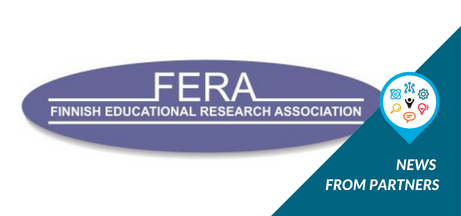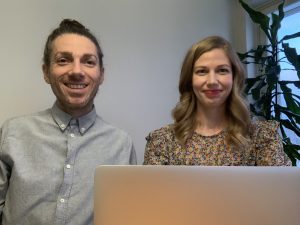
25 Nov Project dissemination at the Finnish Educational Research Association (FERA) Conference on Education

Today, the Finnish team’s project dissemination continued online at the Finnish Educational Research Association (FERA) annual Conference on Education. The topic of this year’s conference is “Education, Learning and Wellbeing of Individuals and Communities”, which is focused on intertwining of issues related to learning and wellbeing at the individual and societal levels.
Research coordinator Iida-Maria Peltomaa and project researcher Lachlan Paterson presented the paper “Compatible or competitors – Utilising STEM approach in implementing interdisciplinary learning modules in the Finnish curriculum” in the theme group for school development. The paper is currently being written based on data collected as part of the ATS STEM project and follow-up interviews of participating teachers. The paper’s abstract is as follows:
STEM education is a central concern of educational policymakers across the globe. Different justifications are provided to promote STEM education initiatives, among which are social, environmental and economic development, innovation and competitiveness, and low STEM graduation rates. The Finnish National Core Curriculum for Basic Education (FNCC), however, does not mention STEM education. Instead, FNCC introduces the concept of interdisciplinary learning modules (ILMs) that integrate concepts and methods of several subjects into learning periods that all schools must provide at least once for every student each academic year. The purpose of this study is to investigate Finnish teachers’ beliefs about the connections between STEM education and the ILMs outlined in the FNCC, and the extent to which STEM is considered to be a compatible or relevant approach to the implementation of ILMs. Further, this study examines teachers’ beliefs about the factors that affect the implementation of STEM education in Finland. To date, there has been little research in Finland into STEM or ILMs, and in particular the utilisation of STEM in implementing ILMs in Finland has not previously been studied. The data for this study consists of classroom observations, as well as semi-structured individual and focus group interviews, and was collected from eight Finnish public basic schools that took part in an Innovative Policy Experimentation project Assessment of Transversal Skills in STEM, funded with support from the European Commission. As part of the project, teachers were given a STEM framework, based on which they designed and implemented a STEM learning module.
Programme and information for the conference can be found in English here, and in Finnish here. Abstracts for the conference can be found here.


